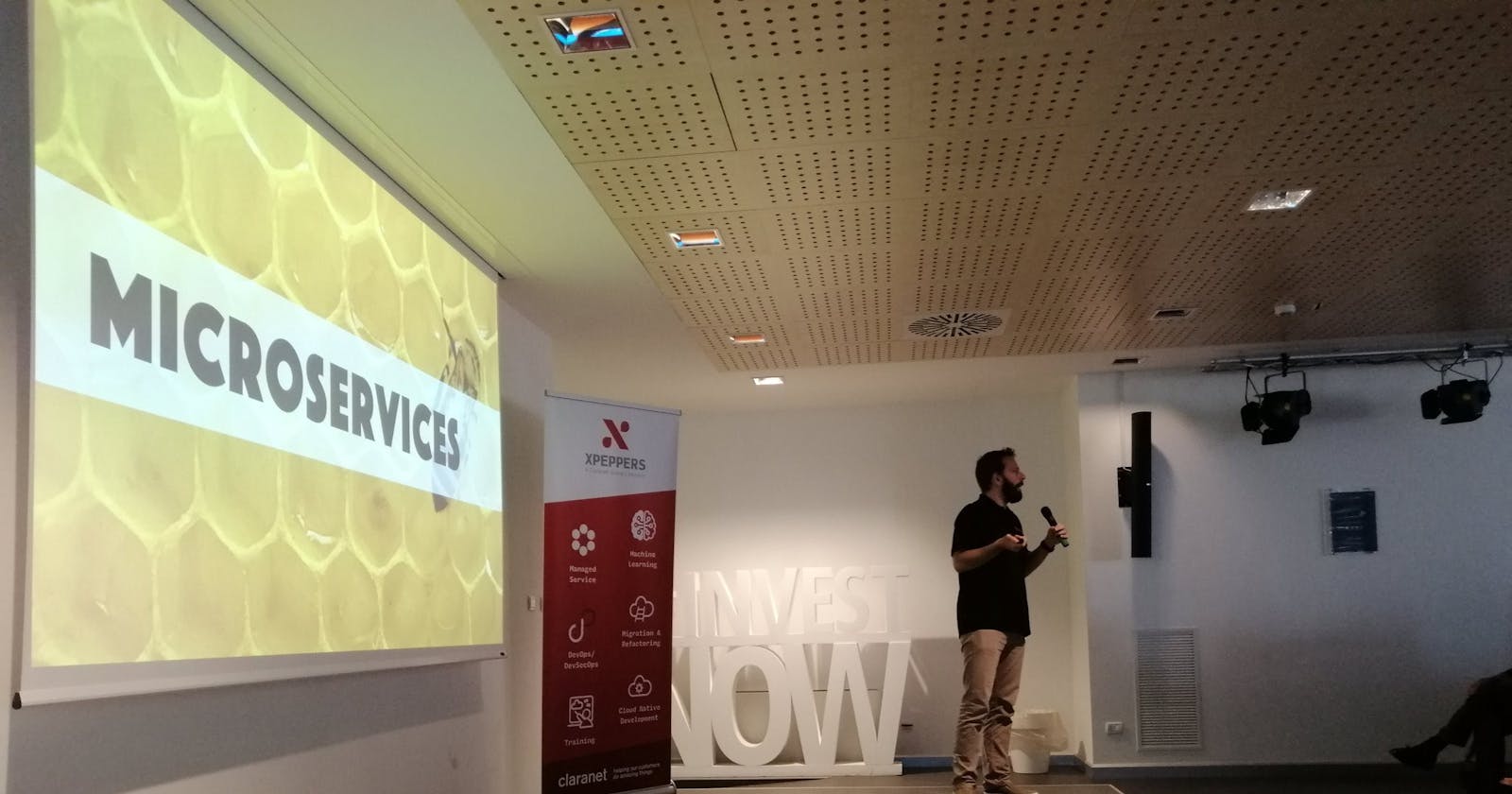On the 8th of March 2018 I gave my first speach in public (dissertation excluded). It was a full-day 8-hour workshop about serverless architectures. Now I don’t remember much of that day: I were too nervous and I wasn’t there. But I clearly remember two things. Number one, the awkward sensation of being in front of the room during the first few minutes of the event. Number two, the powerful sensation, at the end of that day, when the workshop was over and I realised that I had taught my first class.
More than one year after I surely improved, but I know that the road is long and winding. Anyway there are some points that I would like to share.
You cannot say “It’s not for me” unless you try
Today I feel comfortable when I’m in a class but I’m not the most extrovert person and, in my everyday life, I don’t like to be the center stage. As a matter of fact, my mood was like: «No no, this is not for me!». I felt like an impostor. On the other hand, the fact that someone thought that I was able to do that talk, gave me a lot of confidence and relief the first-timer fears.
A lot changed from that day and every time I have the opportunity to be in a class I really enjoy every single second of that day. I know it’s hard and scary at first, but in the end it will be worth. So embrace some awkward moments, standup and speak!
You can’t pretend to be a super brain. Accept it!
One course that I teach is called Architecting on AWS and this is definitely the course that I prefer. During the three days of this course, we talk about a lot of services from Amazon’s ecosystem and the room is usually excited and curious about the potential that open up. As result, students ask a lot of questions about every details or small issues, like pricing. As long as you can be prepared, it is really impossible to get a precise answer for every single question for each service. Point.
At the first, the idea to get caught is an uncomfortable one, with time you will learn that there’s nothing wrong taking time or read the proper documentation before to provide a neat answer. Today when someone asks for a question that I’m not sure about the answer, I postpone it at the end of the module, then as a module’s appendix I show the right process to get the right answer.
First minute is the hardest one, be prepared
Even though you are an experienced trainer, the first minute is always the hardest, because is always hard to break the ice. A possible solution to avoid this sensation is to be prepared in advance.
I have a couple of ice breakers that helps me in that moment. I have tried many approaches and the ones that works better (and this shouldn’t sound surprising) are funny stories.
Find the most empathic person in the room and interact with her/him
There’s nothing worst, both for trainer and the trainees, that a class with unidirectional communication, where the trainer speaks and nobody interact with him or her. This is pretty normal: people tend to be shy and afraid to make mistakes.
Seek the room in order to find the most nice and friendly people and interact with them. Try to set up an enjoyable environment, the overall room will be more relaxed and the learning experience will improve.
People likes stories
This is a widely held belief and this is so common that I was skeptical at first…
…then I change my mind.
If you got a nice story to tell, observe the class and notice how the people’s posture change.
I know this is not simple — after all, we are teaching cloud computing! But I found really useful to introduce example in form of a story. For instance if we have to explain why a service is better than another, we could tell a story of an unhappy customer having a bad day with the service A (and how service B could have avoided it).
People tend to read slide’s content
No matter how good your eloquence is, if there’s some slide content (both text or visual) that anticipate your speech you’ve lost the audience’s attention.
Beware, I’m not saying stop using slides or show slide with a single image of a landscape and (almost) no text at all!
Try to build the overall slide contents one piece at time, accordingly to your narrative.
Conclusions
Prior to my first speech, every book or paper about public speaking sounds to me like an useless, simplistic bunch of concepts. More than one year after I realise that every concept about public speaking is just simple (not simplistic) and can be another arrow in our quiver. So if you have something to say, standup and speak.
I promise that it will be worth.

